
The Free Press

In the middle of the 20th century, suddenly there was this new thing called an astronaut. And in the decades that followed the moon landing, when American kids were asked what they wanted to be when they grew up, the answer was clear: astronaut. Now we’re in the 21st century. And in poll after poll, astronauts don’t top the list. What kids want to be are influencers.
So I wanted to talk to the Neil Armstrong of our generation: Kim Kardashian.
Unlike Armstrong, people have wildly different perceptions of Kardashian. She is a household name—arguably the most famous person in the world. But in every household and among every member of every household, there are conflicting ideas about who she is. And about what, exactly, it is that she does.
Is she a sex symbol or a doting mother of four or the ex-wife of a genius provocateur? Is she a reality TV star? Or a business mogul? Or a social media mastermind?
Here’s what I know: somewhere between 2007, when “Keeping Up with the Kardashians” first premiered, and now, Kim Kardashian mastered media in a way that has transformed it forever. She was in digital while we were all still in analog. You could make a strong case that she’s been living in the metaverse for years.
I know a lot about Kardashian—not just the tabloid stuff, which I eat up like everyone else, but also the fact that in the past few weeks she’s gotten a man off of death row and chartered a plane out of Afghanistan. Still, she surprised me. She told me about working with the Trump White House on criminal justice reform (“I really don’t care about the criticism. I mean, my reputation over someone’s life? Destroy me then.”) and the regret she has about trying to dissuade her then-husband, Kanye West, from wearing The Hat on SNL. She sees herself as neither a Republican nor a Democrat. She thinks cancel culture is “ridiculous.” And she really loves “Hoarders.”
Mostly, I wanted to know how she sees her role in the world—and how she understands the responsibilities that come with her tremendous power.
I hope you listen to the whole episode, but if you are pod-hesitant (and we love you just the same), below is our interview, edited and condensed for clarity.
On Becoming a Lawyer and Criminal Justice Reform:
BW: Congratulations on passing the first part of the bar exam.
KK: Thank you. It really feels so good.
BW: Why are you doing this now? Why decide to study law when you are at the height of your business career and a mom of four?
KK: I was always that girl who was really interested in staying home and watching true crime shows and listening to true crime podcasts. Then I saw a case that really resonated with me. I didn’t understand why someone who had a low level, first-time drug offense had the same exact sentence as Charles Manson. I sent the case to my attorney, and once I saw that I was able to make a difference there was no way that I could stop.
I got invited to a clemency meeting in the Roosevelt Room. And there were all of these really high-profile, high-powered people, and everyone seemed to speak this other language that I didn't. I was bringing my attorney everywhere with me to translate, so I could really digest what everyone was saying. I wanted to know more so that I could do more.
For people that think that this is an easy way out, or the easy way to go to law school: only four states allow this program. You need 75 college credits and then you can become an apprentice for a law firm. You have to do 20 hours a week and send in tests. Halfway through, you have to do one bar exam, and it has a 16 percent pass rate. Then you have to do two more years and then you take the California bar, which has a 36 percent pass rate.
So I didn’t pass the first time. Then I took it again. And I didn’t pass the second time. And I was so discouraged when I didn’t pass the third time. I’m taking hours and weeks away from my kids. I’m doing 12-hour days. I’m not going to dinners with friends. I’ve canceled my life for the last two years to really focus and do this. Every time I failed I felt so bad about myself. But I learned something every single time and I was like, I’m not ready. I gotta do it. I have to work harder. And it was so important to me to at least pass this first bar to prove to myself that I could do it.
When you’re not right out of college and your mind is not in a study mindset, it definitely takes a second to recalibrate. And then you’re like, “Oh my God, am I just so old that I’m not retaining this information now? What’s happening? Why aren't I passing this?” But I did it. And it felt so fucking good.
BW: The original case you referenced, the one that got under your skin, was the case of Alice Johnson. Can you tell us a little bit about her? My understanding is that she is a grandmother who was serving a life sentence for a nonviolent drug charge.
KK: She worked at FedEx. She had five kids. Her 8-year old son just got killed on a motorcycle. Her husband left her without any help financially. She was desperate—and she got fired from her job at FedEx. And someone that worked there had told her, “You know, hey, if you just answer the phone and you say this sentence and be our phone mule, you could get a thousand dollars every time you answer the phone.”
She obviously knew it was shady, but she didn’t know the details of anything and she preferred not to. She had to do what she had to do to feed her kids. It was a sting operation. Everyone got in trouble and got sentences, and when it came to her, she pled not guilty. She wanted to fight it because she really didn’t feel like she had the accountability of what everyone else had done in this conspiracy. And it was her first-time nonviolent drug offense.
My first call was to Ivanka Trump. I said, “You’re a woman. I’m sure you can understand as a mother.” She was so empathetic and understood. And she said: “Why don’t you talk to my husband, Jared?” And I brought him the case, and it took him a few months. He really researched it and got the president behind it, and he granted her clemency and eventually gave her a pardon.
On the Power of Celebrity:
BW: I remember in 2020, when Alice Johnson was pardoned, there was a picture of you meeting with Donald Trump. It was this very revealing moment because it showed these two people who had their roots in reality TV and celebrity, now in the White House, wielding a very different kind of power.
Some people saw it and thought, “Are we living in a simulation?” And others were like, “Why does it take a Kardashian lobbying Donald Trump to get a person like Alice Johnson out of prison?” I wondered what you thought of that. Do you think that celebrities have too much power?
KK: I would probably think the same thing, too. “Why does it take a Kardashian to get someone like Alice Johnson out of prison?” I think our laws are completely unfair, and that experience really opened up a lot for me. I would have done anything to fight for her, and I don’t care if it took a Kardashian or who it took to fight for what’s right to get her—and so many people—out.
I think that people might assume that if you’re fighting for justice reform, you can be too lenient, and that’s not the case at all. There are a lot of people that deserve to be inside and that need to pay for the heinous crimes that they have done. But I believe in rehabilitation. And I believe that Alice showed America that you can let people out who are in her situation and who have spent decades inside for non-violent crimes and who really do deserve a second chance. And I’m always behind a second chance.
On Working With Trump:
BW: You were credited for helping swing Trump's support for the First Step Act, which has changed the lives of so many Americans. There were a lot of people who on the left who criticized you a lot for working with Trump, for normalizing him. What do you say to that?
KK: I really don’t care about the criticism. I mean, my reputation over someone’s life? Destroy me then. I really don’t care. It was not even an option. And he did the right thing.
I’m just about doing the right thing; I’m really not about politics at all. It’s really about the people inside and if I can do anything—no matter if it’s Obama, Biden, Trump, I’m willing to work with anybody. It’s not really about being liked. If I could change someone's life, that’s what it’s about for me.
On Cancel Culture:
BW: You’ve occasionally been accused of cultural appropriation for hairstyles or costumes that you've worn. I remember once there was an uproar because people felt that the Instagram filter that you used was too dark. Obviously, a lot of that is absurd and you’ve rightly ignored it. But on occasion, you’ve responded to these critics, sometimes even making a big change. After a lot of criticism about the name of your shapewear company—it was originally called Kimono—you changed it to SKIMS. How do you decide when to respond and when to protect yourself against the outrage-addicts online?
KK: When it comes to something as serious as cultural appropriation, even if I know my intentions are good, I never want to take anything lightly. In the instance of Kimono and changing that name, it was an innocent name that the team came up with. But when I got a letter from the Japanese officials, I took it extremely seriously. It wasn’t even a question. I immediately halted production, and there were a lot of pieces in production. I said, “Give me a week,” and I had to think of a new name. Anyone that is starting a business knows how difficult it is to come up with a name and the trademarking and everything, but it just wasn’t an option not to.
Still, if I worried about every last thing that someone said and I had to try to change it, then I would never be me. Anyone wouldn’t be them! That’s why I think cancel culture is the most ridiculous thing, because I really do believe—and you and I have been at several dinners together where people are discussing their thoughts on it—in rehabilitation and freedom of speech. I’ve never really been into cancel culture.
BW: How seriously do you take it?
KK: I believe that if we cancel someone for something that they had done or said in their past, then we’re not inviting them into the conversation to really understand. It depends on the situation. You might not care if it’s absolutely ridiculous. But it’s a fine line. It’s what you were asking in the original question: When do you let something go? And when do you have thick skin and not care what people say about you?
The more that I don’t care about fame, the less I care to correct people. I don’t really care what people think about me, but there’s some times where I say, “OK, I completely understand how you would feel like this is disrespectful, and I will absolutely change this.” I always own up to the mistakes that I make and I try not to make them again. That’s just how I live my life. But I think if you don’t have these conversations with people, how are they ever going to change something that isn't right?
On Kanye’s Choice to Wear a MAGA Hat on SNL:
BW: One of the biggest explosions of online outrage that I can remember was in 2018, when Kanye performed on SNL and he wore the red MAGA hat. What lesson, if any, did you learn from that?
KK: I was very nervous. I didn’t want him to wear the red hat. I’m not really a rule breaker, so my personality would be like, “OK, you guys don’t like the red hat? I’ll take it off.’” I remember other people were around and it became a thing where he wasn’t going to go on because he wanted to be who he is. I’m very neutral, but that night I was very forceful with him, and argued with him like, “You have to take that hat off.” And now looking back, I think, why should he take that off if that’s what he believes in? Why can’t he wear that on TV? Half of the country voted for him, so clearly other people like him.
I learned a lot from that situation. No matter what, it taught me to be a little bit more empathetic for people that just want to do what they want to do: freedom of speech! And if you want to wear the hat, wear the hat. I respect the fact that he knew exactly what he believed in and always stood by that. To me, that’s a good quality to have, no matter who is against you and no matter what the circumstances are. I think that it’s just admirable and it’s just a really cool quality. Even if it’s not what I agree with, or even if I would have done it differently, I think it’s commendable.
On Her Relationship to Her Audience:
BW: You have 269 million followers—one of the biggest Instagram accounts in the world. Bo Burnham once sang about his torturous relationship with his audience: “A part of me loves you. Part of me hates you. Part of me needs you. Part of me fears you.” How do you feel about your audience?
KK: That’s such a good quote. And that’s probably exactly how everybody feels that’s on social media. It’s not for everyone, and I respect that. It’s definitely allowed me to grow a thick skin and to move more confidently knowing that, “OK, I'm going to post this and this is what I believe in.” This is why I’m not a tweeter and deleter. I try to always stay true to what I believe in and only post that.
I get that it can look like this fake world, but it can also just be a photo album of your cutest and best memories. So I do understand how negative it can be, and I have kids and I’ve started a TikTok recently with my daughter. We had to think about the decision of keeping comments on, or taking comments off. She only looks at it when she’s on my phone. All of these are really big decisions, and I’ll do anything to protect my kids and I get it from all sides. I don’t think that there’s going to ever be a right answer because it’s exactly like that quote.
On Beauty:
BW: Was there a moment that you realized that there was something called being beautiful? And when did you understand that you were beautiful?
KK: Well, thank you for saying that I'm beautiful. We grew up in Beverly Hills and everyone was Jewish and I never really saw people that really looked like my family. I didn’t really know what being Armenian was. I didn’t know where Armenia was. I don’t know if I felt beautiful. My parents told me and my sisters all the time, but all parents do that, you know? I always felt very loved. I always felt very secure.
BW: But it wasn’t a source of power in your mind that you had this amazing look?
KK: No. I feel like my family was the power and no one could fuck with us. It was always us together, no matter what it was. It was never using our beauty to get here or to get this or that, it was more like “We’re a family, and that’s how we’re going to get there.”
BW: When I was growing up, I remember in middle school people worshiping Kate Moss. There were these Calvin Klein ads with her—I’m sure you remember them—and everyone wanted to be that skinny. Did you have a feeling of: that’s not my body type and I feel strange that I’m so curvy when this is the physical ideal?
KK: Oh, absolutely. It was all about heroin chic in the ’90s, and I would walk by in high school and people would smack my butt. Everyone used to do that. It was so bizarre. I had huge boobs when I was like 12 years old and I was always really curvy. Nobody looked like me until the end of high school and then it was Jennifer Lopez and Salma Hayek, and I was like, “That’s it! I see it, I see it.” And it felt so good.
When I first started to get into fashion, no one would send me clothes because they were like, “There’s no way this is going to fit her right?” And I was like, “I promise it’ll fit me. I’ll squeeze into it.” When I started to have friends that were designers and they would make collections that would fit more of my body type, I felt like, OK, this is a win for the curvy girls, because people were starting to design differently. That made me really proud.
On Fame:
BW: Can you describe for me the moment, if there was one, when you decided you wanted to be famous?
KK: Oh God. I was so desperate to be famous. In 2007 that was the ultimate goal. I had an apartment on Robertson. I mean, you couldn’t get more desperate than that. But it’s so fun to look back at that time in my life. It was so much fun and it was so innocent.
BW: Looking back, what do you think you wanted from fame? Was it power? Was it freedom? Was it something else?
KK: I don’t even know if I had a thought of what fame was. I mean, probably the power. I think it seemed glamorous and fun. I’m not one of those people that thinks: “Oh my God, with fame comes all of these hardships.” My life is so amazing and awesome and a lot of it came from the spotlight. I know that a lot of negative things come from the spotlight, but I don’t choose to ever focus on them, so I don’t ever regret my path or being famous. I’m not a complainer. I do think that challenges have come into my life because of the lack of privacy, but I still think that overall, our life is pretty blessed because of everything that we’ve worked hard for. I’ll never complain about it.
On Social Media and Body Image:
BW: I’m sure you’ve read about the potentially toxic effect that platforms like Instagram have on girls—especially teenage girls. There was a stat that came out from the Facebook whistleblower that 32 percent of teenage girls said that when they felt bad about their bodies, Instagram made it worse. Now, there are some people that say, as we just said, “Girls have always felt bad. And it used to come from Seventeen magazine or fashion or Hollywood.” But then there are those who say: “Bullshit. These platforms are radically different.” I’m curious where you fall in that debate. And, also, knowing that there are tens of millions of girls looking at your pictures, how do you think about your responsibility to them?
KK: I fall somewhere right in the middle. I can see how people could see these unrealistic narratives that people want to put out of their lives. However, I’m also super motivated by it. I found my personal trainer on Instagram by seeing her post her before and after photos of being a little bit heavier and changing her entire lifestyle and getting into shape. And she changed my whole world for the better.
I’m at a place where I really know myself and I’ve been through a lot and I use it just to share glimpses of my life. I realize that younger kids might not be at that place, and it took me a long time to get there. I try to put myself in my nieces’ and nephews’ and my kids’ shoes to see how they would feel, and I would never want anyone to feel anxiety or pressure from what they see on the internet to be different than who they are. I spend extra time with my kids and my nieces and nephews to make them feel loved and supported and heard and fulfilled in our everyday lives.
There’s a lot that you can learn on social media. I learned about these women playing sports in Afghanistan by reading about them on the internet, and I was able to connect with Rabbi Weiss and get a plane for them to safety. There’s amazing things you can find out. I found out about Alice Johnson on the internet.
I always try to look at the positive. It’s just like how I view my fame, I’m never going to sit and complain that my life sucks because I’m not private like I used to be. I’ve had awful experiences in my life: getting robbed and tied up and at gunpoint because I was too public and showing off my things. But I still feel like all of those experiences accumulated and taught me who I am and showed me my real self and what’s important to me. Had I not been super public, and had I not had those experiences, I wouldn’t be who I am today, and I would have never had the awareness to want to help other people and do the work that I’m doing.
On Breaking The Rules:
BW: The other day your daughter, North, went live on TikTok. She stumbled into your bedroom and she caught you in bed on your phone, and you say to her: “No stop, you’re not allowed.” And I laughed and I couldn’t help but see the irony. Kim, in many ways you’re the opposite of a cautionary tale. You did all the things. You say you follow the rules, but come on, you broke so many of the rules. You didn’t always do what was allowed. And you won.
KK: I guess you’re right. Like, I do break the rules. I didn’t really think about it that way. I’m cautious. I care so much about what other people think that I try to do it in a respectful way, even if I break them.
BW: Right, I think that's a really great way to put it. So, you might not have started a Silicon Valley company in a garage, but you definitely broke the mold. And watching her go live and you say, “it’s not allowed,” I asked myself: Isn’t it inevitable that she’s going to do with the newest media what you once did?’
KK: Absolutely. I mean, North West is Kanye West’s daughter. Forget that, she’s his twin. So she will still definitely do all of the above. But in my household, there are rules. She did feel really bad about that, and she apologized to me and she said “I saw on TikTok that I got in trouble and I’m really sorry.” And she got it.
Lightning Round:
BW: Do you ever go out in disguise?
KK: Yes. I’ll wear a mask, sunglasses, and a baseball hat. Nothing crazy.
BW: The strangest thing someone’s asked you to sell or promote?
KK: I think the irony of selling diet pills and cupcakes and promoting Carl’s Jr. and Sketchers to work out all at the same time was really wild.
BW: What reality shows do you watch?
KK: I love “Hoarders.” And I love “Dateline.” I know it’s not a reality show, but it’s very real.
BW: Who intimidates you?
KK: Who intimidates me? I was going to say politicians, but they don’t. Maybe just my daughter, North.
BW: Who’s the nicest celebrity?
KK: Sarah Jessica Parker is the nicest celebrity on the planet.
BW: Snap your fingers. You’re not famous anymore. What’s the first thing that you would do?
KK: I would go to the grocery store.
BW: Favorite Kanye West album?
KK: I really like Yeezus. I also love My Beautiful Dark Twisted Fantasy.
BW: Favorite Taylor Swift song?
KK: I really like a lot of her songs. They’re all super cute and catchy. I’d have to look in my phone to get a name.
BW: What do you smell like?
KK: I smell like gardenia and like tuberose all the time.
BW: Who’s your favorite SNL cast member?
KK: What a setup! Bari, you know.
BW: Do you believe in God?
KK: Of course I believe in God.
BW: Boobs or butts.
KK: Butts.
BW: Best piece of parenting advice?
KK: Be easy on yourself. It’s hard.
BW: Are you a feminist?
KK: I don’t really like titles. I believe in fighting for women 100%, but I just also believe in fighting for what’s right.
BW: Speaking of titles, are you a Democrat?
KK: I believe in the rights that the Democrats want, but I believe in the taxes that the Republicans want. I’m a mix of both.
BW: Will you ever run for public office?
KK: As of right now, no. I understand the responsibility, and it’s an extremely hard job, and I don't know if I’d ever want that.
BW: If you do, can I apply to be your campaign manager?
KK: Absolutely. I would love that.
BW: What advice would you give your 18-year-old self?
KK: Don’t change anything because it all made you who you are today, even if it doesn’t seem like it and it seems dark or scary. And maybe spend a little bit more time with your dad because you only have a few more years left with him.
For more on the nature of the internet, listen to the brilliant Jaron Lanier or Ryan Holiday. Or, if billionaires are more your thing, Mark Cuban and I talk about money and power in this episode.


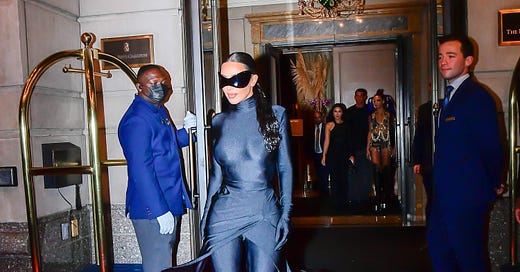

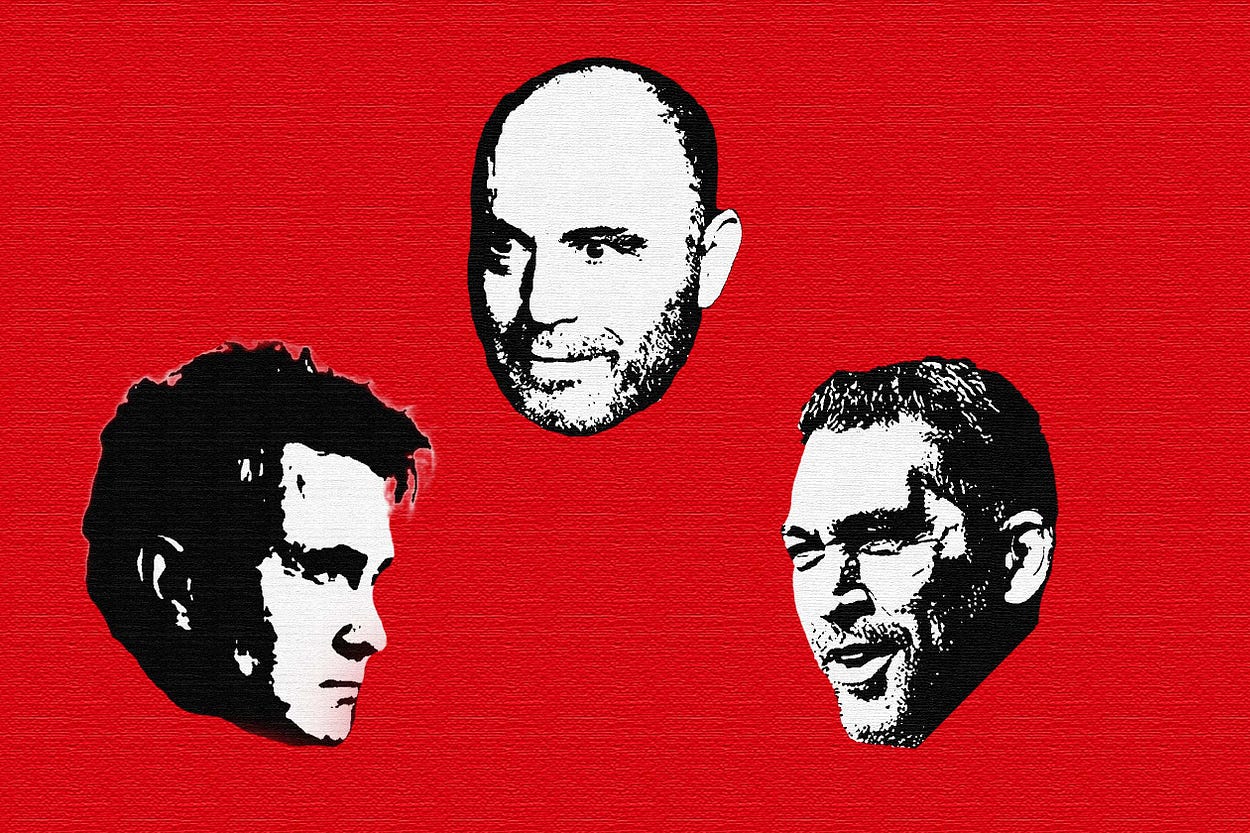

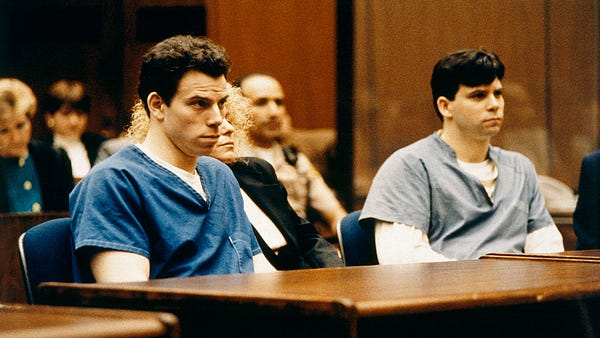

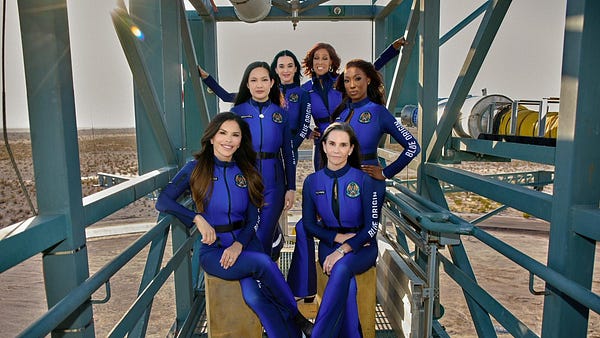

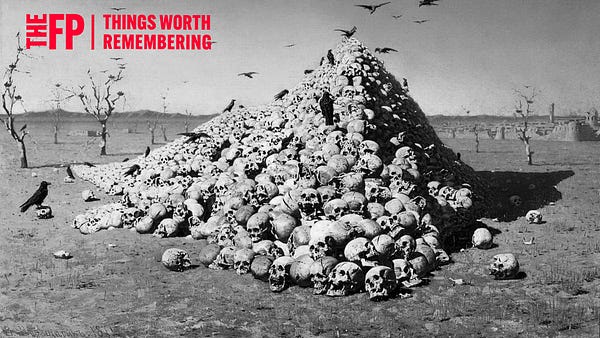


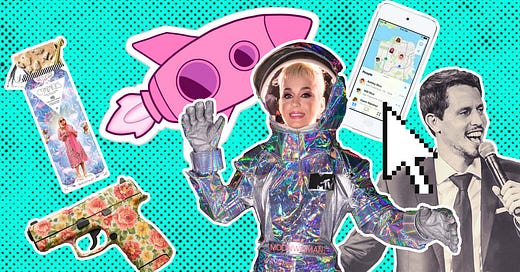
First time I feel like I wasted my money joining . feeding people this crap is so below the standard expected
The picture says it all. Aristocrats breathe freely. Serfs are gagged for the amusement and pleasure of the aristocrats.